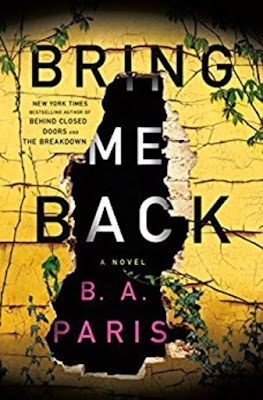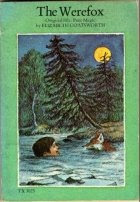66. Slog's Dad by David Almond
 Slog's Dad by David Almond. Illustrated by Dave McKean (Canada) - (US)
Slog's Dad by David Almond. Illustrated by Dave McKean (Canada) - (US)Pages: 57
Ages: 13+
Finished: Mar. 14, 2011
First Published: 2006 UK, anthology (FEB. 22, 2011 graphic US edition)
Publisher: Candlewick Press
Genre: YA, magical realism, death
Rating: 3/5
First sentence:
Spring had come.
Acquired: Received a review copy from Candlewick Press.
Reason for Reading: I have, some may call a morbid, interest in stories that deal with death. From a Christian perspective, but also how people of different beliefs grieve and deal with it and how that compares to the Christian experience.
First of all, this book was not what I had expected. The publisher's tagline "Do you believe in life after death?" and the book's summary had me expecting a story dealing with reincarnation. That couldn't be further from this book's theme. Also the publisher recommends this book for ages 10+ while myself, I can hardly recommend the book for children at all. It is very emotional, deep and profound. The discussion of death is brutally honest and I can't imagine a child not being either scared by it, or if they have experienced the death of a parent that it might reopen old wounds and make the child bitter as to why *their* parent didn't visit them.
Slog's family is Irish Catholic, though I believe the story is taking pacing in England, possibly Yorkshire due to the accent used. Slog's dad, Joe Mickley, is a garbageman, who continuously sings hymns while he works and always talks about Heaven. Whenever a problem in this life is mentioned he'll make a comment about it being better in Heaven. Everyone loves Joe. Then Joe gets a black spot on his big toe and next thing you know he's had his leg removed above the knee and been fitted with a tin leg. Time goes by and the other leg goes and eventually the neighbours see the doctor arrive at the house, then the priest, and finally the undertaker. But Slog's dad promised him on his deathbed that he would return for a visit in the spring.
The story is narrated by Slog's friend Davie and on this particular day in spring, Slog sees a homeless man on a bench and is convinced it is his father; he goes over to talk to him. Davie wants no part of it and goes into the store but when he comes out Slog is still there sitting on the bench chatting with the vagrant. When Davie joins them, the man talks to Slog as if he were his Dad. Slog is joyous. Davie is skeptical. Davie asks the man pointed questions to which he coldly looks at Davie and answers them correctly. Depending on what angle one looks at this encounter, one can believe, like Davie that the man is playing along with Slog for the sake of his belief and faith in his father's promise or one can believe with Slog that somehow, perhaps as an angel, his father was allowed one rare visit with him down from Heaven, just this once.
This story is eerie and the first half of the father dying is dark, though his faith in Heaven adds joyous light to an otherwise sad story. The second half is whimsical, perhaps supernatural, though my religion does not hold with angels walking on earth with human bodies, or perhaps just one human doing a good deed towards another in a time of need.
As far as illustrations go, they are amazing and an integral part of the book. While this story was originally commissioned as a short story for an anthology, this illustrated version adds a whole new dimension to the story. Rather than having illustrations depicting parts of the text, the book is divided into sections of text and then sections of graphic wordless illustration which also continue to tell the story. In this way the book can more likely be called a graphic novel or hybrid rather than a traditional picture book. Somewhat similar to "The Invention of Hugo Cabret" though on a much smaller, less grand scale. My rating reflects the publisher's recommended age compared to my own. Do picture books always have to be recommended for children? This story features a child as a main character but I think it will be most well appreciated by those old enough to contemplate death and their own personal beliefs in the afterlife.


I really like David Almond, but haven't read anything by him in a while!
ReplyDelete